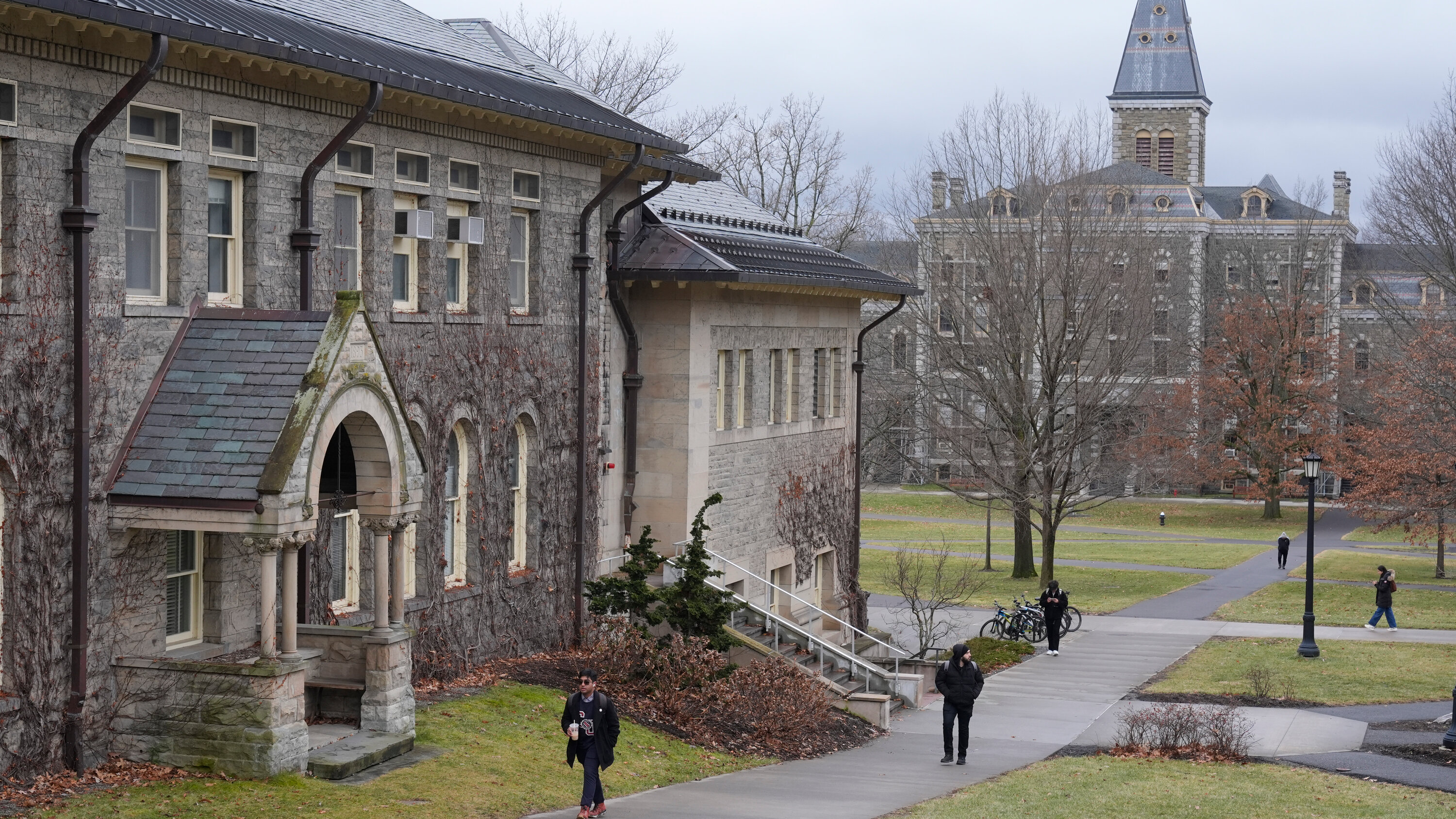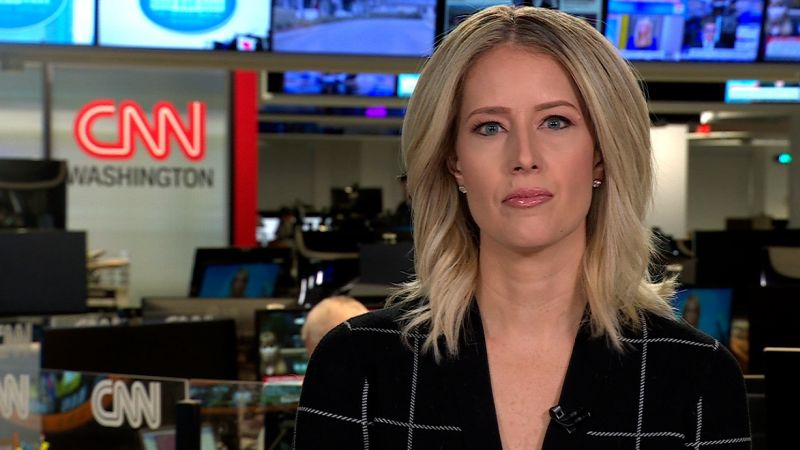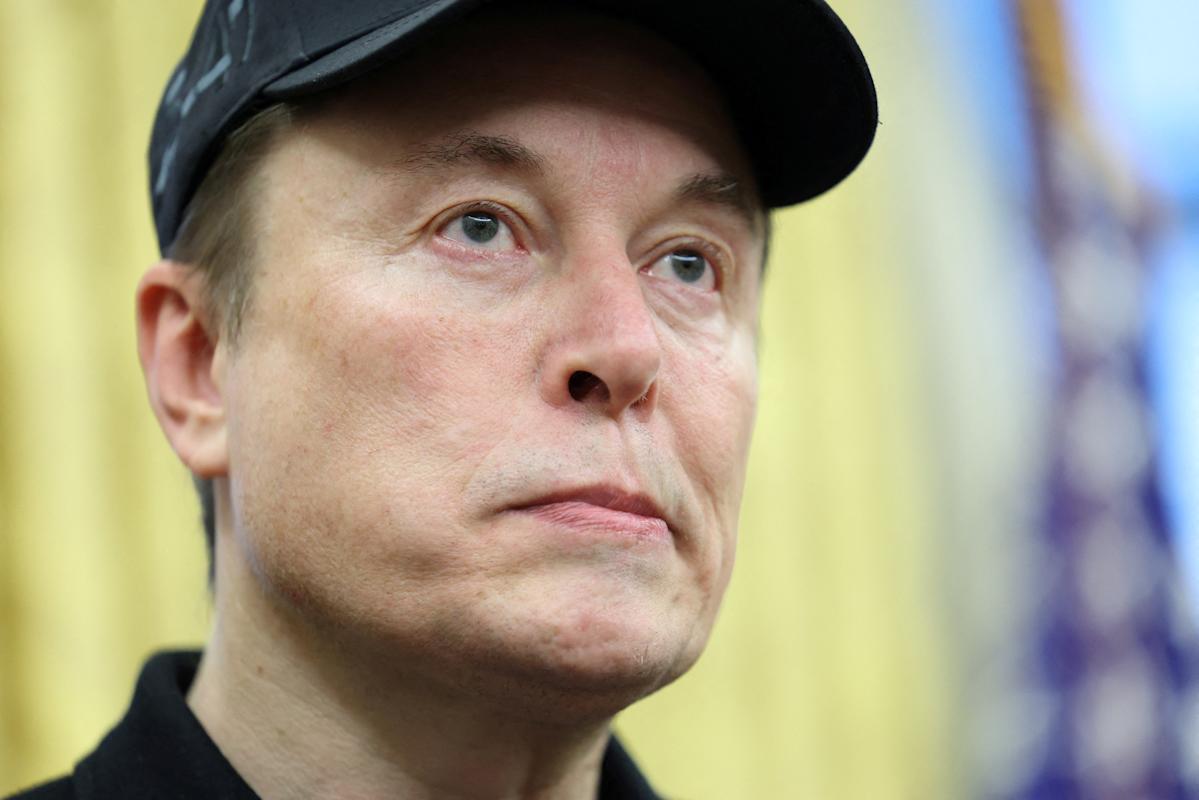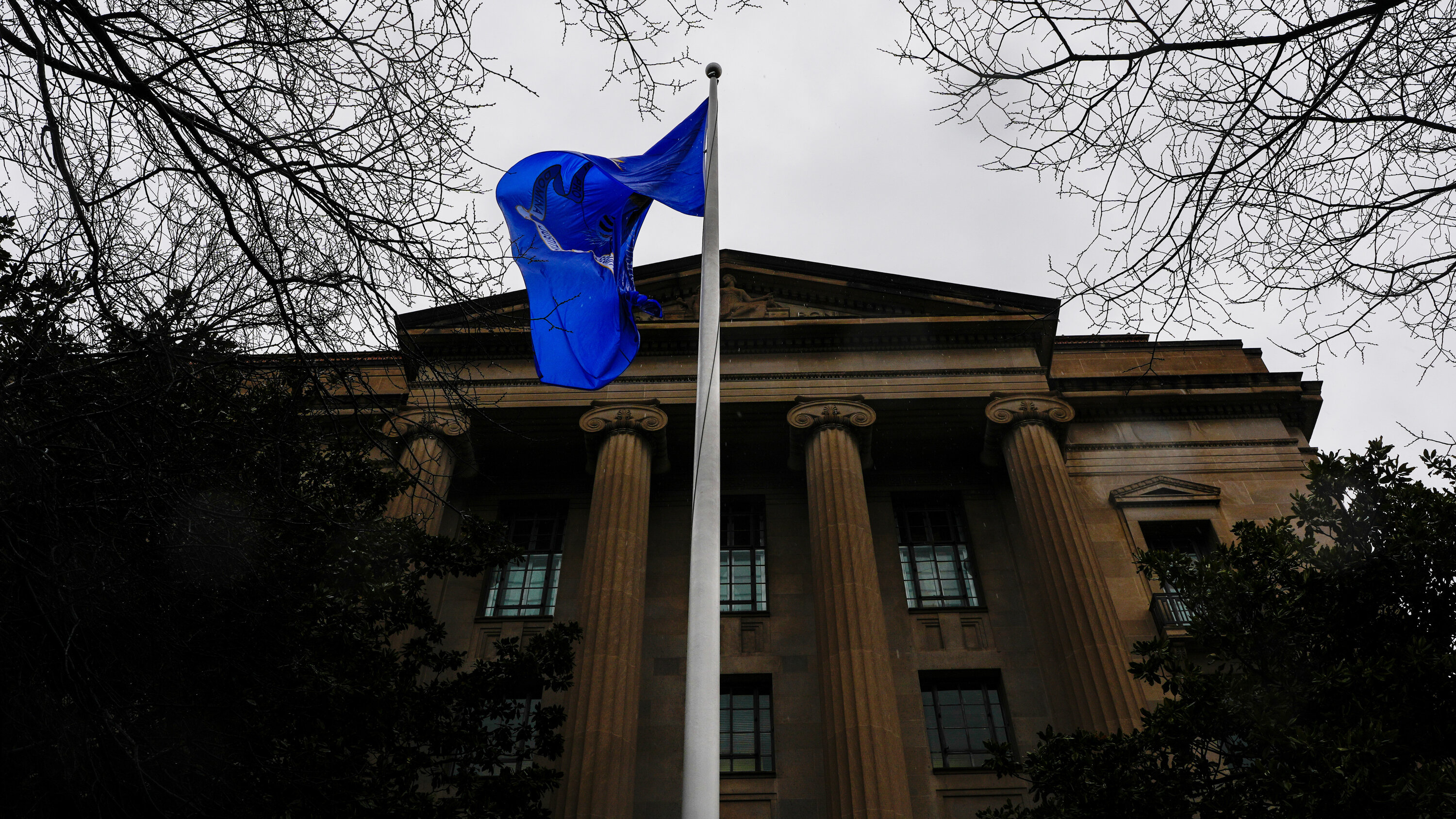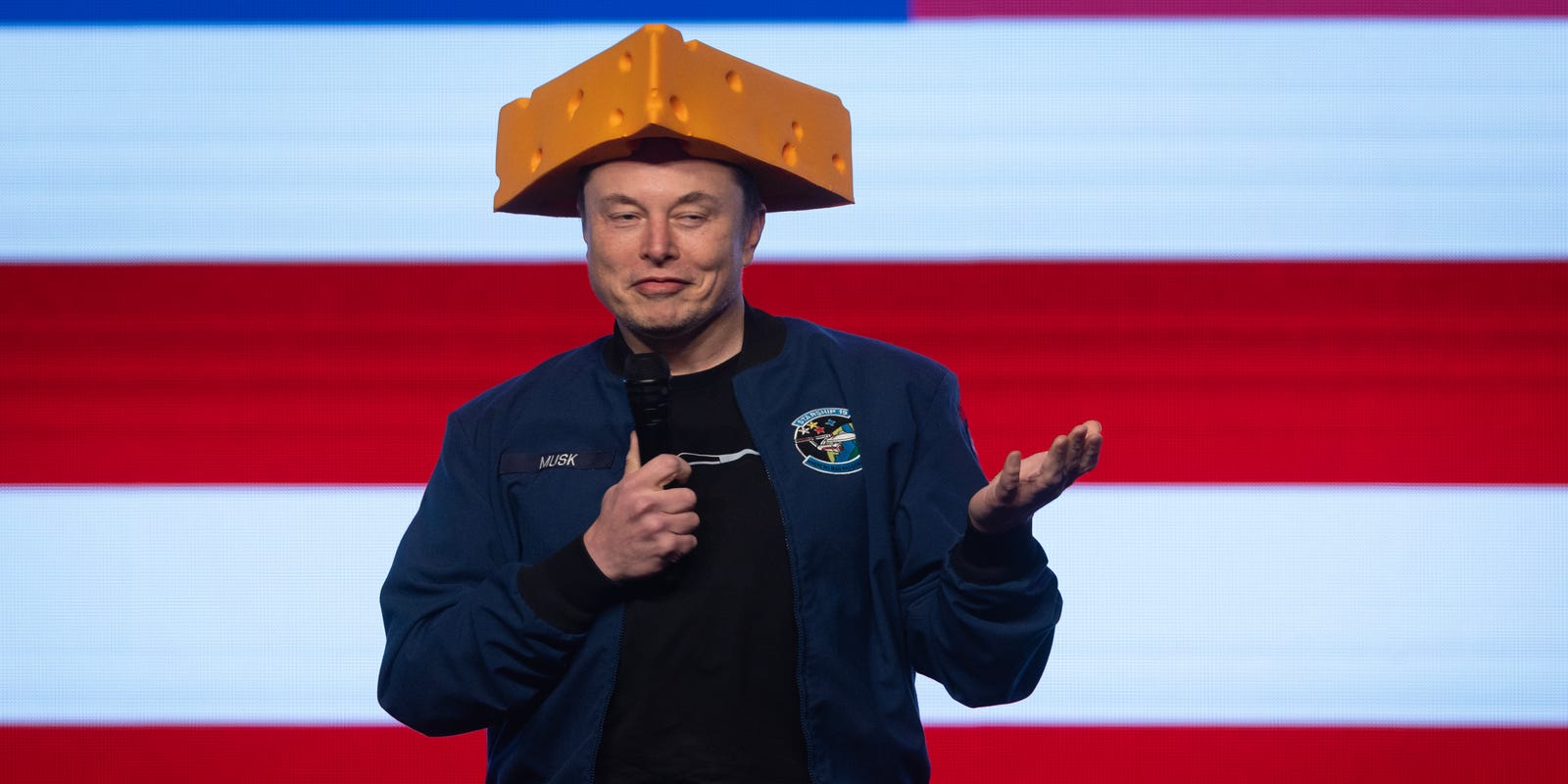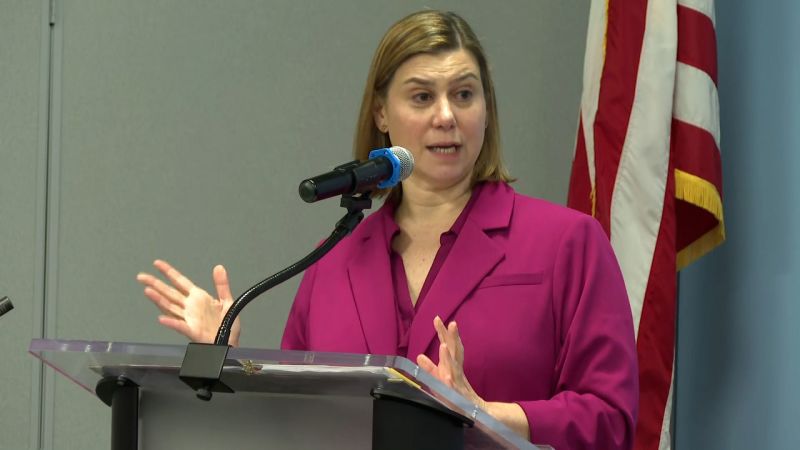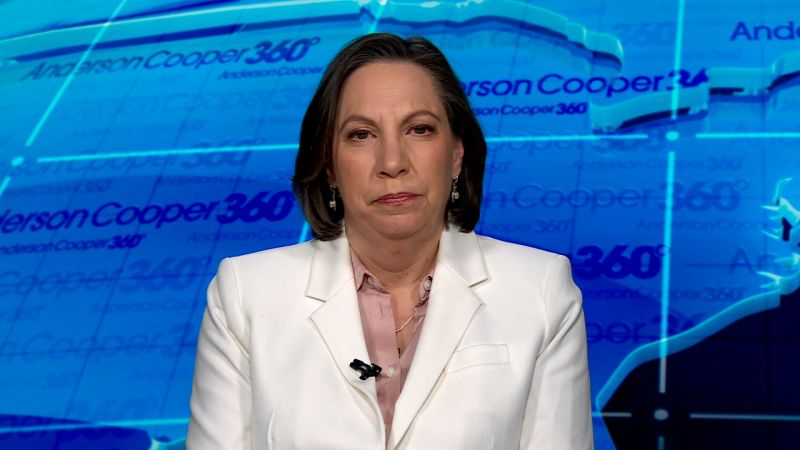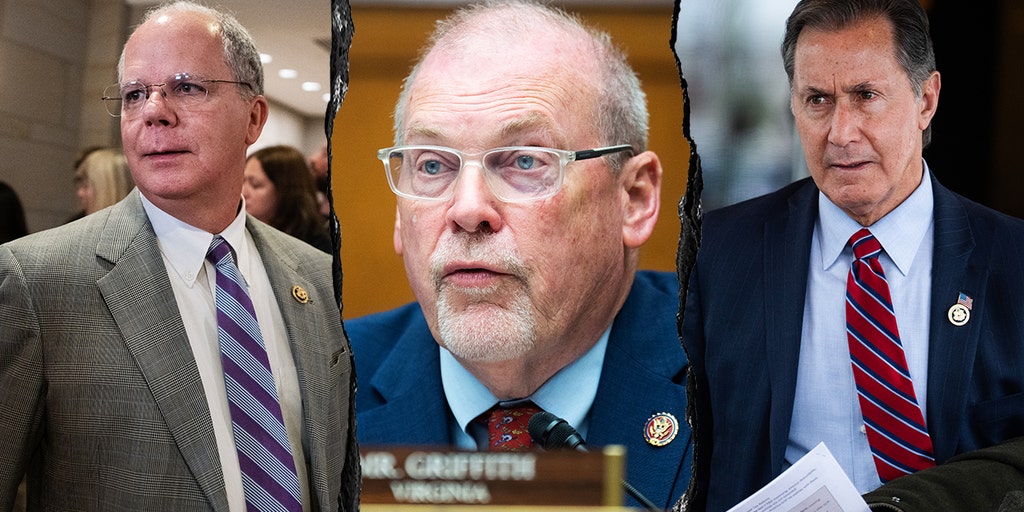Statehouse Showdown: Reynolds and Grassley's Political Fault Line Emerges
Politics
2025-05-03 03:08:39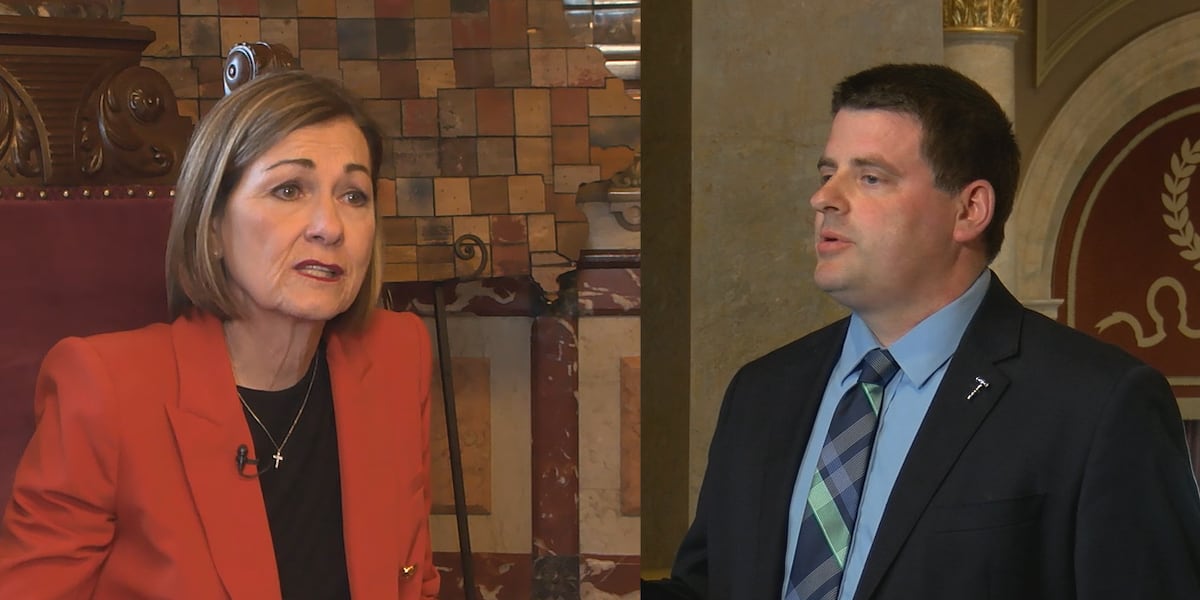
A heated debate is unfolding in Iowa's state government as Governor Kim Reynolds and House Speaker Pat Grassley find themselves at odds over a critical issue: raising pay for paraeducators. The dispute highlights the ongoing challenges of supporting educational support staff who play a crucial role in schools across the state. At the heart of the disagreement is a proposed pay increase for paraeducators, who are essential workers providing critical support in classrooms. Governor Reynolds and Speaker Grassley are presenting conflicting views on the feasibility and priority of this potential wage boost. Paraeducators, who typically earn modest wages while providing invaluable assistance to teachers and students, are caught in the middle of this political standoff. Their work, which includes supporting students with special needs, managing classroom activities, and providing individual student assistance, is increasingly recognized as vital to the educational ecosystem. The back-and-forth between Reynolds and Grassley underscores the complex negotiations that occur behind the scenes in state budgeting and education funding. As discussions continue, educators and support staff are watching closely, hoping for a resolution that recognizes their contributions to Iowa's educational system. The outcome of this debate could have significant implications for school districts, educational support staff, and the students they serve across Iowa. MORE...
Trump Predicts Economic Turbulence: A 'Necessary Pause' for Long-Term Gain
Politics
2025-05-03 01:14:09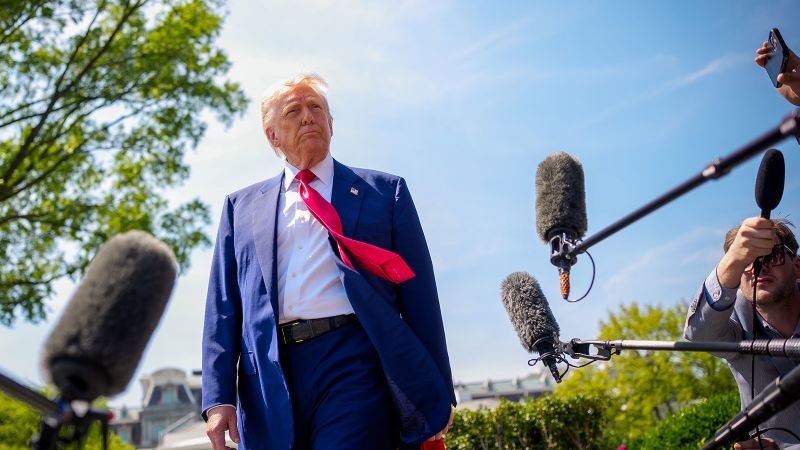
In a candid conversation with NBC News, President Donald Trump offered a surprisingly measured perspective on the potential economic challenges facing the United States. Despite growing concerns about a possible economic downturn, Trump expressed confidence that the nation's economic foundation remains robust. He suggested that even if a short-term recession were to occur, the long-term economic outlook would ultimately remain stable and resilient. The president's remarks provide a nuanced view of economic uncertainty, acknowledging potential near-term fluctuations while maintaining an optimistic stance about the country's overall economic health. His comments reflect a pragmatic approach to economic forecasting, recognizing that temporary setbacks do not necessarily indicate a fundamental weakness in the nation's economic structure. By framing a potential recession as a manageable, temporary challenge, Trump sought to reassure investors, businesses, and citizens that the American economy possesses the inherent strength to weather economic turbulence and emerge stronger in the long run. MORE...
Global Tremors: Trump's Economic Rhetoric Shakes International Political Landscapes
Politics
2025-05-02 23:50:09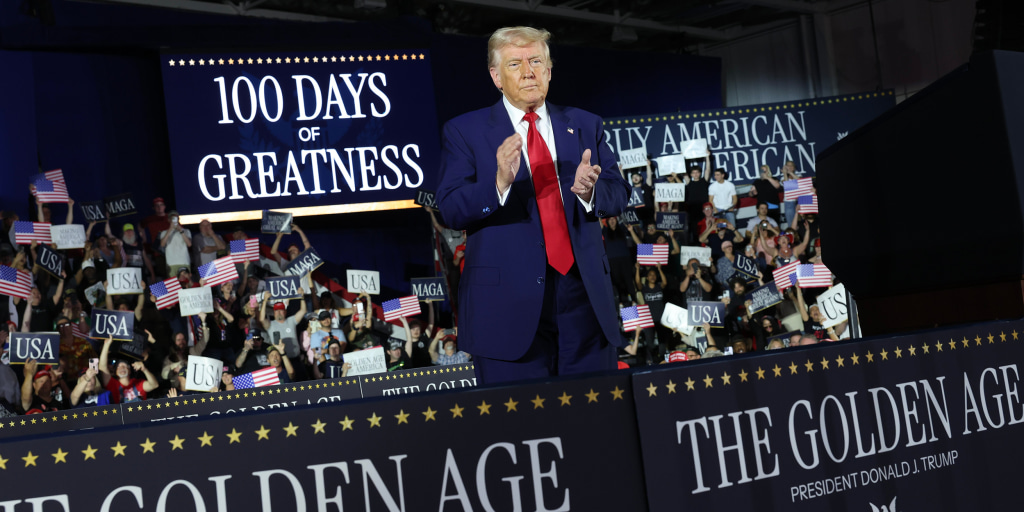
In a dramatic political twist, another U.S. ally finds its electoral landscape dramatically reshaped by the lingering shadow of Donald Trump. Following Canada's recent electoral upheaval, a new international trend is emerging where voter sentiment continues to be profoundly influenced by the former U.S. president's polarizing political legacy. The ripple effects of Trump's political brand are extending far beyond American borders, demonstrating his enduring impact on global political dynamics. Each election cycle now seems to carry an undercurrent of Trump-related sentiment, with voters in allied nations carefully weighing their political choices through the lens of his controversial presidency. This phenomenon reveals a complex international political landscape where Trump's influence persists, even years after leaving office. Voters are increasingly expressing their views not just on local issues, but also on the broader geopolitical implications of leadership styles and international relationships. The ongoing electoral disruptions signal a significant shift in how global constituencies perceive political leadership, with Trump's political approach continuing to serve as a powerful reference point for electoral decision-making across different national contexts. As allied nations navigate these turbulent political waters, the Trump effect remains a critical factor in shaping electoral outcomes, underscoring the far-reaching consequences of his unprecedented political tenure. MORE...
Bolton Blasts Trump's Negotiator: A Scathing Critique of Diplomatic Incompetence
Politics
2025-05-02 23:27:23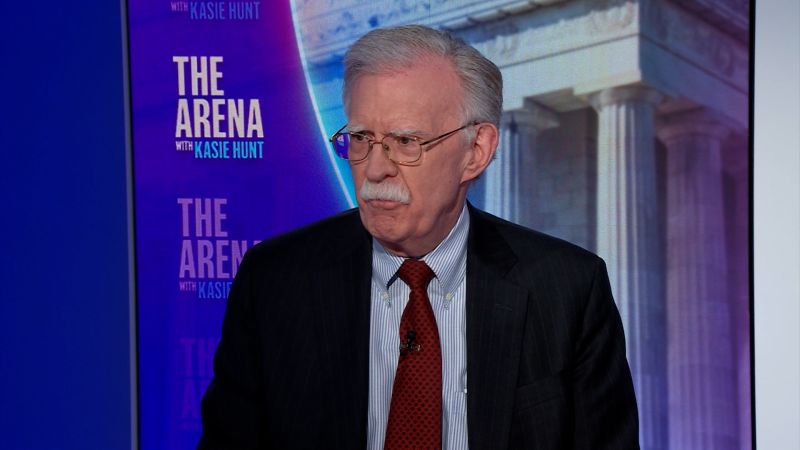
In a sharp critique, former US Ambassador to the UN John Bolton has raised serious concerns about Steve Witkoff's emerging diplomatic role. The real estate attorney turned international envoy is reportedly attempting to mediate complex negotiations involving Iran, Ukraine, Russia, and Gaza—a mission Bolton describes as "a disaster in the making." Bolton's pointed remarks suggest deep skepticism about Witkoff's qualifications and potential effectiveness in handling such intricate and high-stakes international diplomatic challenges. The criticism highlights the potential risks of involving individuals without traditional diplomatic training in sensitive geopolitical negotiations. As tensions continue to simmer in these volatile regions, Witkoff's unconventional diplomatic approach has drawn scrutiny from foreign policy experts and seasoned diplomats like Bolton, who warn of potential complications and unintended consequences. MORE...
Chemical Clearance Revolution: Trump's EPA Rewrites the Rulebook
Politics
2025-05-02 23:18:57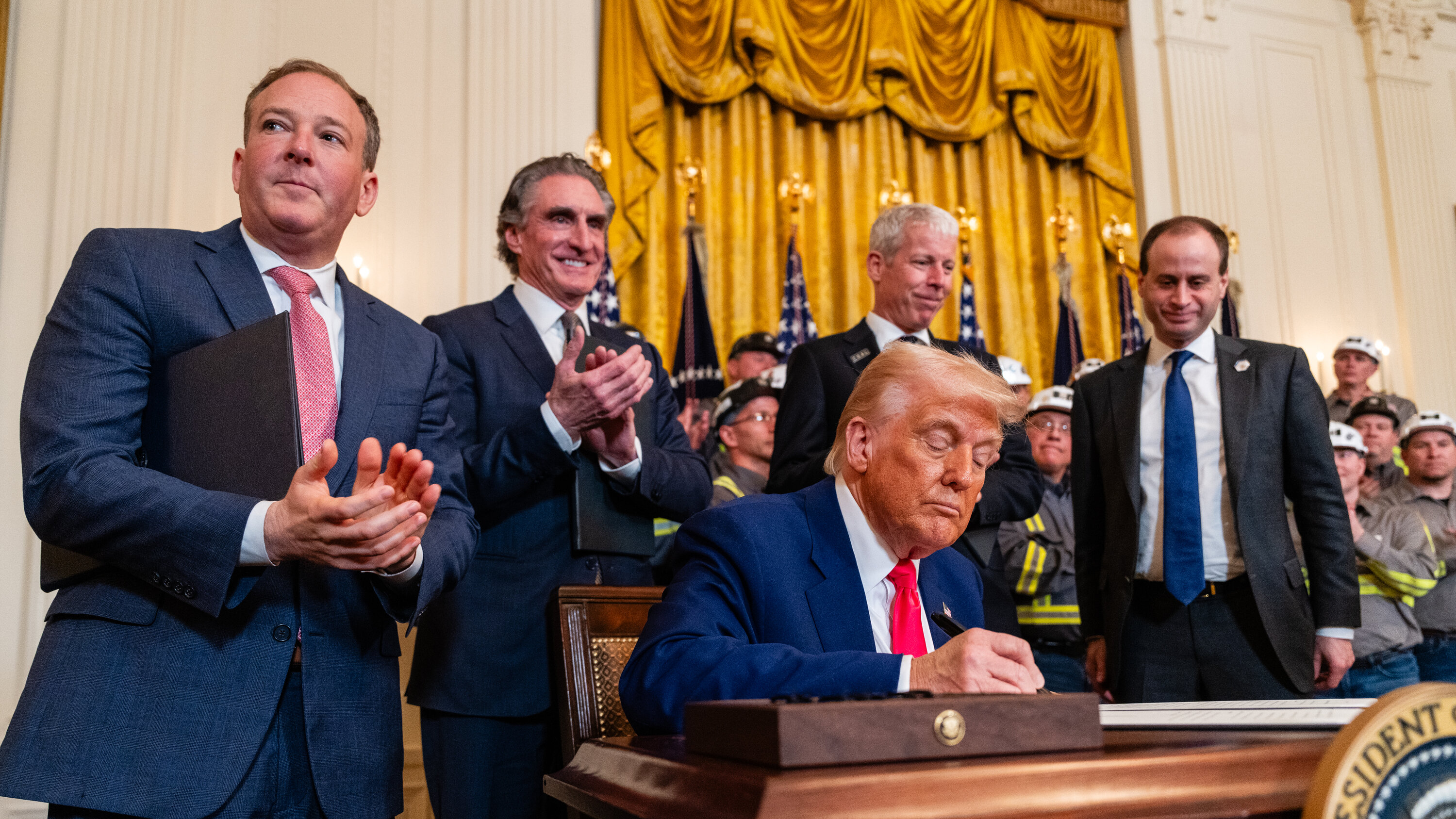
In a significant strategic move, EPA Administrator Lee Zeldin revealed the agency's plans to realign its scientific resources and expertise. The announcement signals a potential shift in the Environmental Protection Agency's approach to research and environmental policy, promising a fresh perspective on critical environmental challenges. Zeldin emphasized the agency's commitment to adapting its scientific capabilities to meet emerging environmental needs, suggesting a comprehensive reevaluation of current research strategies and priorities. This repositioning aims to enhance the EPA's ability to address complex environmental issues with more innovative and targeted scientific insights. MORE...
Legal Showdown: Federal Judge Halts Trump's Crackdown on Perkins Coie in Landmark Ruling
Politics
2025-05-02 23:12:23
In a significant legal rebuke, a federal judge has struck down an executive order signed by former President Donald Trump that targeted a law firm representing his 2016 presidential campaign rival. The ruling decisively condemned the order as unconstitutional, highlighting concerns about potential abuse of presidential power and interference with legal representation. The judge's ruling underscores the importance of protecting legal rights and maintaining the separation of powers, sending a clear message that executive actions cannot arbitrarily target legal professionals based on political motivations. This decision represents a crucial safeguard for the fundamental principles of legal representation and fair political competition. By declaring the executive order unconstitutional, the court has reaffirmed the critical principle that legal professionals should be able to represent their clients without fear of retribution or undue governmental interference, regardless of the political landscape. MORE...
Tunisian Political Firestorm: Ex-PM Faces Decades-Long Sentence in Controversial Terrorism Trial
Politics
2025-05-02 22:57:57
In a bold stance against what they perceive as judicial manipulation, Former Prime Minister Ali Larayedh and the opposition Ennahdha party have vehemently condemned the ongoing trial, characterizing it as a politically driven prosecution designed to target their political interests. The party leadership argues that the legal proceedings are less about justice and more about settling political scores, suggesting a calculated attempt to marginalize their political influence and undermine their democratic representation. MORE...
Dual Duty Dilemma: Rubio's High-Stakes Balancing Act in National Security
Politics
2025-05-02 22:42:11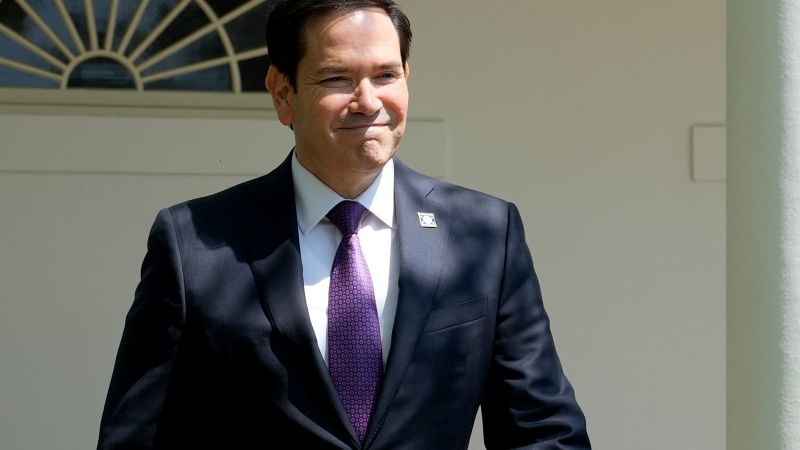
In a strategic move at the White House, the recently appointed interim national security adviser is poised to lead the team for an extended period, potentially up to half a year. Sources close to the adviser reveal that he is prepared to provide stable leadership during this transitional period, ensuring continuity in critical national security matters. The interim appointment signals a deliberate approach by the administration to maintain strategic consistency while carefully evaluating long-term leadership options. With a commitment to serve for up to six months, the adviser aims to provide steady guidance and expertise during a potentially sensitive time for national security operations. MORE...
Dogecoin's Political Crossroads: Musk's DC Exodus and the Crypto Ripple Effect
Politics
2025-05-02 22:24:45
Elon Musk's Dramatic Pullback: The Unraveling of His Washington Disruption Plan Elon Musk's ambitious vision to reshape government interactions has hit a significant roadblock, revealing the complex challenges of challenging established political systems. After months of high-profile confrontations and bold statements, Musk appears to be stepping back from his aggressive campaign to transform governmental operations. The tech mogul, known for his disruptive approach in technology and business, seemed poised to challenge Washington's traditional power structures. However, recent developments suggest his strategy is encountering unexpected resistance and complexity. Musk's retreat signals more than just a tactical withdrawal; it represents a profound recognition of the intricate political landscape. Key stakeholders in both tech and political circles are closely watching this strategic shift. Musk's initial aggressive stance—which included public criticism of government regulations and promises of radical restructuring—has now given way to a more measured approach. This pivot highlights the formidable challenges of implementing sweeping institutional changes. While Musk's influence remains substantial, his current retreat underscores the resilience of established governmental systems. The episode serves as a compelling reminder that even the most innovative entrepreneurs face significant hurdles when attempting to fundamentally reshape long-standing institutional frameworks. The implications of this strategic withdrawal extend beyond Musk's personal ambitions, potentially offering insights into the broader dynamics of technological innovation and political engagement in the modern era. MORE...
Political Pivot: New College Drops Bid to Absorb USF's Sarasota Campus and Ringling Museum
Politics
2025-05-02 22:10:17
In a recent development, insider sources have revealed to Florida Politics that the current ownership of higher education facilities is expected to remain unchanged. The sources, speaking on condition of anonymity, suggest that despite speculation, there are no imminent plans for a transfer of ownership or management of these educational institutions. This update comes amid ongoing discussions about the future of higher education in the state, providing some clarity and stability for students, faculty, and administrators. The sources indicate that any potential changes have been carefully evaluated and, for now, will not proceed. While the specifics remain confidential, the information suggests a commitment to maintaining the current educational infrastructure and leadership within Florida's higher education landscape. MORE...
- 1
- 2
- 3
- 4
- 5
- 6
- 7
- 8
- 9
- 10
- 11
- 12
- 13
- 14
- 15
- 16
- 17
- 18
- 19
- 20
- 21
- 22
- 23
- 24
- 25
- 26
- 27
- 28
- 29
- 30
- 31
- 32
- 33
- 34
- 35
- 36
- 37
- 38
- 39
- 40
- 41
- 42
- 43
- 44
- 45
- 46
- 47
- 48
- 49
- 50
- 51
- 52
- 53
- 54
- 55
- 56
- 57
- 58
- 59
- 60
- 61
- 62
- 63
- 64
- 65
- 66
- 67
- 68
- 69
- 70
- 71
- 72
- 73
- 74
- 75
- 76
- 77
- 78
- 79
- 80
- 81
- 82
- 83
- 84
- 85
- 86
- 87
- 88
- 89
- 90
- 91
- 92
- 93
- 94
- 95
- 96
- 97
- 98
- 99
- 100
- 101
- 102
- 103
- 104
- 105
- 106
- 107
- 108
- 109
- 110
- 111
- 112
- 113
- 114
- 115
- 116
- 117
- 118
- 119
- 120
- 121
- 122
- 123
- 124
- 125
- 126
- 127
- 128
- 129
- 130
- 131
- 132
- 133
- 134
- 135
- 136
- 137
- 138
- 139
- 140
- 141
- 142
- 143
- 144
- 145
- 146
- 147
- 148
- 149
- 150
- 151
- 152
- 153
- 154
- 155
- 156
- 157
- 158
- 159
- 160
- 161
- 162
- 163
- 164
- 165
- 166
- 167
- 168
- 169
- 170
- 171
- 172
- 173
- 174
- 175
- 176
- 177
- 178
- 179
- 180
- 181
- 182
- 183
- 184
- 185
- 186
- 187
- 188
- 189
- 190
- 191
- 192
- 193
- 194
- 195
- 196
- 197
- 198
- 199
- 200
- 201
- 202
- 203
- 204
- 205
- 206
- 207
- 208
- 209
- 210
- 211
- 212
- 213
- 214
- 215
- 216
- 217
- 218
- 219
- 220
- 221
- 222
- 223
- 224
- 225
- 226
- 227
- 228
- 229
- 230
- 231
- 232
- 233
- 234
- 235
- 236
- 237
- 238
- 239
- 240
- 241
- 242
- 243
- 244
- 245
- 246
- 247
- 248
- 249
- 250
- 251
- 252
- 253
- 254
- 255
- 256
- 257
- 258
- 259
- 260
- 261
- 262
- 263
- 264
- 265
- 266
- 267
- 268
- 269
- 270
- 271
- 272
- 273
- 274
- 275
- 276
- 277
- 278
- 279
- 280
- 281
- 282
- 283
- 284
- 285
- 286
- 287
- 288
- 289
- 290
- 291
- 292
- 293
- 294
- 295
- 296
- 297
- 298
- 299
- 300
- 301
- 302
- 303
- 304
- 305
- 306
- 307
- 308
- 309
- 310
- 311
- 312
- 313
- 314
- 315
- 316
- 317
- 318
- 319
- 320
- 321
- 322
- 323
- 324
- 325
- 326
- 327
- 328
- 329
- 330
- 331
- 332
- 333
- 334
- 335
- 336
- 337
- 338
